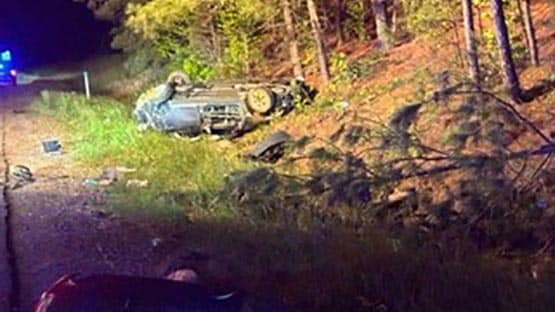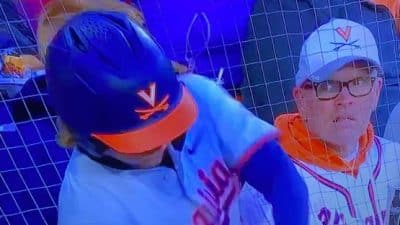Will Goodlatte run alone in November?
Story by Chris Graham
David Layman isn’t giving up on the idea that Sixth District Democrats will be able to field a challenger to Republican Congressman Bob Goodlatte this fall – but it’s safe to say that the prospects of that happening are not looking good at this point.
“Our focus at this time is still on finding a candidate,” said Layman, the chair of the Sixth District Democratic Committee – which has until June 13 to nominate someone to contest the seven-term incumbent.
Other Democrats in the district are readily conceding the point that the party will not be in a position to place a candidate on the ballot.
“You are probably right – that we will not have a candidate facing Mr. Goodlatte this fall,” said Tom Long, the chair of the Augusta County Democratic Committee.
“The frustrating thing with this is that the chances are closer to 50 percent that we could do this this year than they have probably been in a decade or more than a decade. There are going to be some entrenched Republican members of Congress, including committee chairs, who are going to lose in November. And Bob Goodlatte could have been one of them,” said Sam Garrison, a Roanoke Democrat who serves on the Sixth District Democratic Committee.
“You would never know unless you run somebody in a serious campaign whether the balance has shifted enough to enable a Democrat to actually win or not. I honestly believe that an articulate and reasonably well-financed candidate could beat Bob Goodlatte this year. But it doesn’t look like we’re going to see that,” Garrison told The Augusta Free Press.
Whether or not the numbers could add up to an upset in November in the Sixth District is a matter of conjecture at this point. Bridgewater College political-science professor David McQuilkin, for one, isn’t so sure that the timing is right for that kind of thing to happen this year – if it will be anytime soon.
“It’s simply very difficult for a Democrat in Western Virginia to have any real hope of winning a seat – given the demographics of the region and also the configuration of the seats themselves,” McQuilkin said.
“The districts are very clearly designed to favor Republican officeholders – and so they are predominantly Republican in terms of voter population within each district. Which is going to make it extremely difficult for any Democrat to run – and if a Democrat is going to run, he’s going to have to be basically a Republican. And that is not something that I would imagine that most voters who are looking for change are going to take well in terms of their own circumstance – because that’s not what they want to see. If they want a Republican, they can put Goodlatte back in,” McQuilkin told the AFP.
Goodlatte could still face something in the way of opposition in November. Carey Campbell, the state chairman of the Independent Greens of Virginia, confirmed to the AFP that Roanoke minister Martin Jeffrey is collecting signatures on ballot-access petitions with a run at the Sixth District seat in mind.
If Jeffrey, who ran in the Sixth District in 2002 and 2004 as a write-in candidate, makes it onto the ballot, it would mark the first formal challenge of Goodlatte since his convincing 1998 win over former Roanoke mayor David Bowers. The House Agriculture Committee chair has gone without ballot opposition the past three election cycles as Democrats have struggled to fight the advantages of incumbency and Goodlatte’s sizable campaign treasury.
“It’s nothing specific to this area. Nationwide, incumbents have the multimillion-dollar fund-raising advantage. There’s also the fact that nationwide 90 to 95 percent of congressional districts are drawn to be friendly to one side or the other,” said Joe Fitzgerald, a Harrisonburg Democrat who serves on the Sixth District Democratic Committee.
“As far as here in the Valley, all of us that are on the Sixth District committee would like to see us get a candidate – because even if the chances of winning don’t get above 40, 45 percent, you still have the opportunity to have a debate on the issues. You have the opportunity to point out places where Bob Goodlatte might differ with folks in the district. And you have the opportunity to energize the base,” Fitzgerald told the AFP.
And the base is increasingly energizing as it is – even in spite of the fact that the party is again having trouble getting a candidate on the ballot for the congressional race.
“There is energy among the local Democrats like most people haven’t seen for years,” Long told the AFP. “I can remember going to Augusta County Democratic Committee meetings when there were three or four of us there. Now we have meetings where there might not be as many of us there as they have at local Republican meetings, but we’re getting 15 or 20 people – and as elections approach, we’re getting even more people.
“We have even gotten new members here recently – people saying, I want to be part of the Augusta County Democratic Committee, I can’t attend all of the meetings, but I support your work, and call me when you need something. In the last month or so, we’ve gotten a dozen or so unsolicited folks like that. I think that’s pretty interesting,” Long said.
Garrison, for his part, isn’t surprised to see that kind of uptick in activity among local Democrats.
“If a year ago, people had known how low the fortunes of the Republican Party, both the White House and the Congress, would have sunk, by today, there might have been a contest for the nomination. Because there is a feeling among a lot of people, and I certainly don’t think it’s just Democrats, that maybe all bets are off – that we have extraordinarily low levels of approval for the Congress controlled by the Republicans and the White House controlled by the Republicans,” Garrison said.
“There are certain things that are going on in the world – such as the war in Iraq and oil prices and real concern about the competency of the federal bureaucracy that was really heightened tremendously by the Katrina disaster – that have forced many people to want to decide to take a stand,” Garrison said.
Translating those individual stands into victories at the ballot box is likely to prove to be easier said than done.
“The Sixth is a very conservative district – and that’s going to make it difficult for any Democrat who’s going to face probably a 2-1 margin at best,” McQuilkin said.
“That means that candidate would have to split the Republican margin in half, and I just don’t see that. And I think the Democrats don’t see it either – so the national party isn’t going to put in any money because they have other races that are going to be much, much more competitive and where they could make a much greater impact with whatever resources they put in. And the state party’s not going to put in much money – other than maybe a token amount at best – for the same reason. There are going to be other races across the state that they could spend their money on that are going to have a much better return on their investment,” McQuilkin said.
“I don’t see that changing until Goodlatte retires – and even then, I would put money on the fact that when Goodlatte does step aside, a Republican will claim the district because of its configuration and demographics,” McQuilkin said.
(Published 05-15-06)










